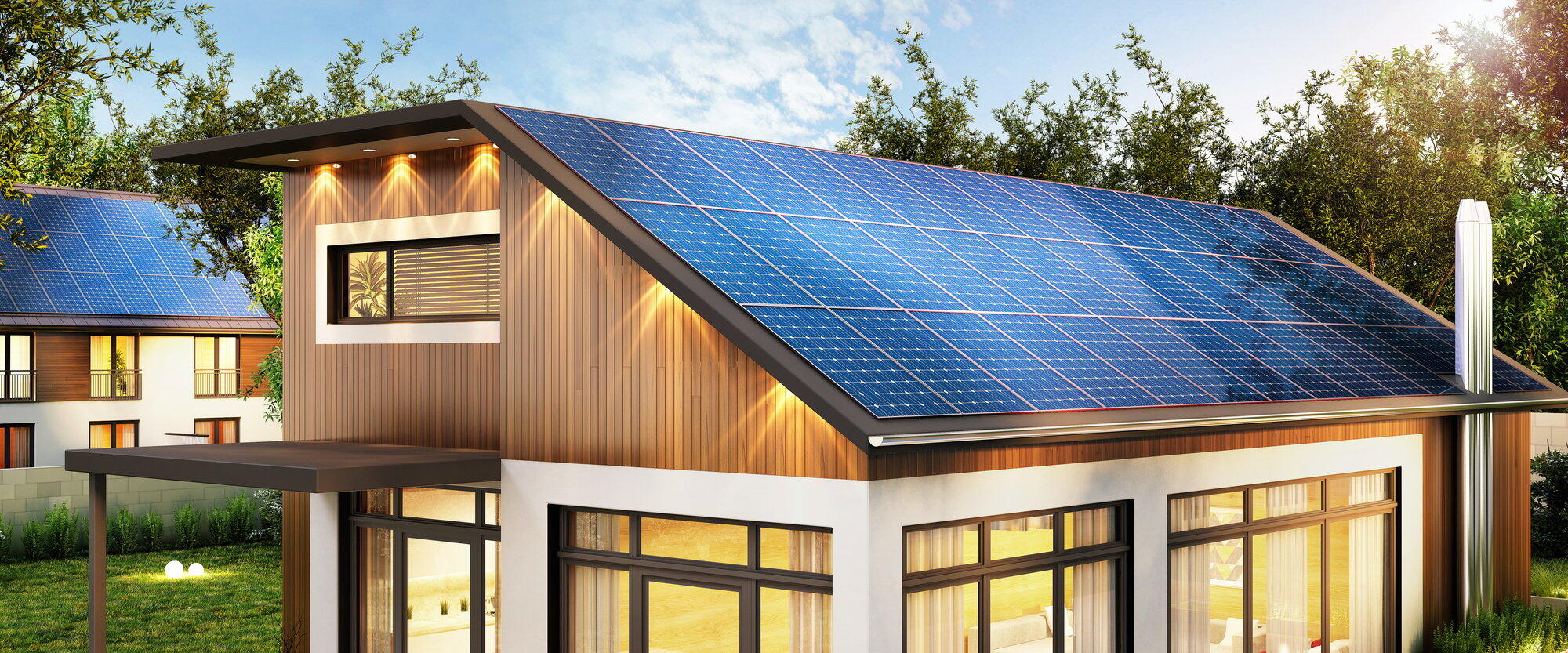
Losing power is often more disruptive than homeowners are prepared for. It’s not just that you can’t make a pot of coffee or turn on the lights. Power outages cut off your source of hot water, limit your ability to cook meals, and disrupt your daily work or school schedule.
Last year, about 67% of US homeowners experienced at least one power outage, leading more to worry about grid instability. Unsurprisingly, many are now looking for a grid-independent alternative.
Today, we’re going to talk about two viable options: solar panel vs generator energy. Read on to learn the pros and cons of both and how to decide which one is right for your home.
Solar Panel Pros
First, let’s talk about the benefits of using solar technology at home. From the positive environmental impact to the hands-off energy, there’s a lot to love about solar panels.
Environmental Friendliness
Natural gas is the primary source of energy in the US. Not only is natural gas non-renewable, but it’s taking a serious toll on the environment.
Solar power doesn’t produce emissions during the generation process. Overall, it has a much lower carbon footprint than natural gas.
Potential for Full-Time Use
Homeowners can invest in solar batteries that store solar power as a backup energy source. However, solar panels are the more popular investment for a reason.
With solar panels, you can offset all or some of your home’s electricity at all times. Solar panels are more than a backup and have the potential to save you money on utilities.
Passive Energy Conversion
When you opt for something like this expert residential solar installation in Tacoma, there’s not much you have to do. You will need professional solar panel maintenance, but not a ton of DIY tinkering.
In other words, you can sit back and enjoy your alternative energy source without a ton of stress.
Solar Panel Cons
With such unbeatable benefits, why haven’t more homeowners switched to solar power? Here are some of the potential downsides of installing solar panels on your property.
Upfront Costs
Many homeowners are reticent to go solar because of the high cost of solar. What they may not realize, however, is that they don’t need to pay everything upfront.
Most solar companies offer great financing options with set monthly payments and low interest rates. You can also take advantage of solar tax credits and additional state and local incentives.
Maintenance
As we mentioned earlier, solar panels do require maintenance. Unless you’re experienced with solar technology, you shouldn’t expect that you can do a lot of that maintenance yourself.
That said, most solar panels come with warranties that can help you save on long-term costs. Plus, new solar technology can last up to 30 years before you need a replacement.
Potential Inconsistencies
Contrary to popular belief, solar panels don’t require constant direct sunlight to function. However, they’re going to work best if they get about four hours of direct sunlight per day.
Most homeowners enjoy consistent dependability from their solar power. However, if you live in an area with high cloud coverage, rainfall, or snowfall, you may need to rely on the grid from time to time.
Generator Pros
Generators are one of the oldest alternatives to the grid. Take a look at why they’ve been a reliable source of backup power for decades.
Immediate Backup Power
A properly installed backup generator will kick on within seconds of a power outage. This means you’ll experience minimal disruption to what you were doing and may not experience any impact on appliances like water heaters.
You can also customize your generator to only power certain things. For example, you may only want to power your most important appliances and a reduced level of lighting. This may be possible depending on the model you buy.
Lower Upfront Costs
Homeowners often find the upfront cost of a generator more palatable than the price tag on solar panels. Depending on your energy needs, you may find used generators for as little as $10,000.
That said, there are also generators that cost upwards of $20,000. Depending on your energy needs, make sure to do cost comparison before deciding generators are the cheaper choice.
Enhanced Control Over Power
As long as your generator has the fuel it needs (gasoline, propane, diesel, etc.), it’s going to supply you with power. For some, this feels more reliable than solar panels.
Keep in mind that once you’re out of fuel, your generator will stop working. You may want to store additional fuel on your property.
Generator Cons
Just because generators have been around for a long time doesn’t mean that they’re the best solution for your property. Here are some of the downsides of using a generator for backup fuel.
Ongoing Costs
Though generators may cost less upfront, they don’t always cost less in the long run. They do require ongoing maintenance to ensure safe and reliable usage.
Plus, you’ll need to pay for fuel. The cost of non-renewable energy is on the rise and may not dip any time soon.
Carbon Emissions
Generators put out a lot of emissions, including toxic fumes. Not only does this mean they’re not great for the environment, but they can also pose a health risk.
Always install generators in well-ventilated areas. Expect them to produce both smells and sounds that your neighbors may not appreciate.
Low Value Gain
Generators do not appreciate over time. Depending on the age and popularity of your model, the cost of maintenance and replacement parts can go up with time.
Because generators don’t save money, they also don’t tend to add value to your property. If you’re planning to sell, don’t expect to recoup what you invested in your generator.
Solar Panel vs Generator: Go Solar for Full Grid Independence
In the battle between solar panel vs generator energy, solar panels tend to win. Generators are a great option for quick backup energy when the grid goes down, but solar technology can take you off the grid completely.
Looking for more useful information? Take a look at our blog as we cover the latest trends.




